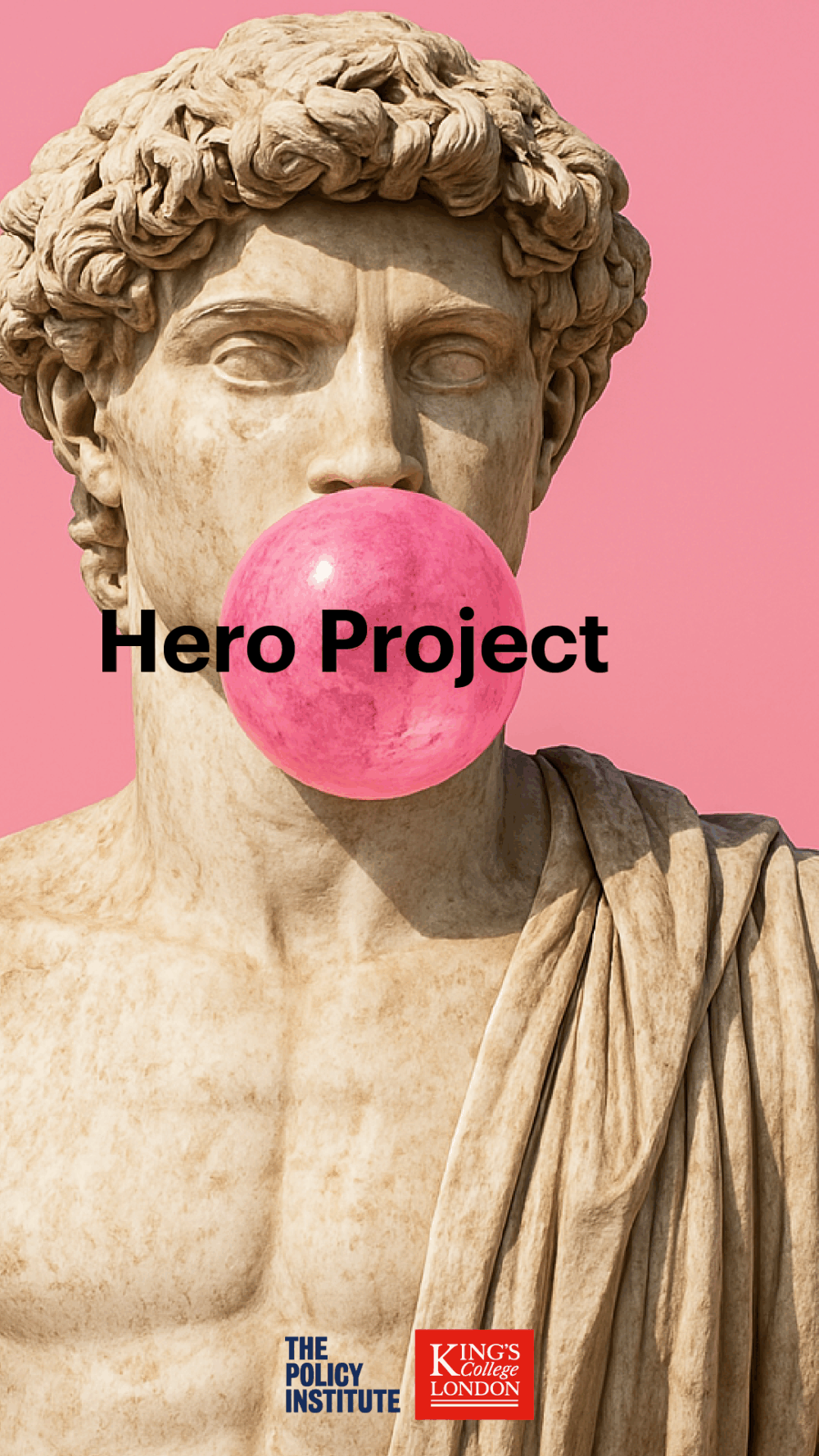
Social inequalities and public opinion in Greece
The need for an adjustment of the country’s economic model towards a direction of production of new wealth and sustainable development constitutes one of the few points of convergence of the political spectrum in Greece. Naturally, political parties have adopted different arguments and explanations for the causes of our economic depression, however the main framework within which solutions should be sought -namely the Euro and Eurozone regulations – is not disputed by the major parliamentary forces. Additionally, all parties regard social cohesion and reducing inequalities as main pillars of their economic strategy. The concept of “social cohesion”, as well as that of “ecology” or “justice”, are one-size-fits-all political accessories. However, they’re also political agendas that require definitional settlement and specialisation to applied politics.
Inequality as a condition and as a perception
Economic inequality is at the same time an “objective” condition as well as a perception. The two aspects can be non-identical at times. As is often the case with security or immigration, a citizen may be feeling a lot more vulnerable than what the “objective” conditions they are experiencing might justify. Just like someone who has never been a victim of a crime, might regard the situation as being “out of control”, or someone who has never visited an immigrant’s house might consider “foreigners” to be “dirty”. Naturally, one can observe the exact opposite: Someone who lives in a crime-ridden environment may consider said environment to be normal or unavoidable to such a degree that they do not mobilize politically.
AboutPeople’s compelling research does not leave any room for doubt that the perception of economic inequality in Greece is very high. Approximately three fourths of the participants consider Greece to be (more or less) unfair towards its citizens. This feeling of injustice has both comparable and permanent characteristics. Four out of five participants believe Greece to be more unfair than other European countries, whereas approximately 70% believe that injustice is on the rise (only 6.5% believe it to be declining). According to the participants, the five main causes that fuel injustice in Greece are (in priority order): salary ranges, the lack of meritocracy, particracy, foreigners and the unfair tax system.
Are inequalities on the rise in Greece?
This borderline endemic pessimism regarding inequalities in Greece is, naturally, linked to real-world economic circumstances, albeit not fully. According to 2020 Eurostat data over one third (27.5%) of Greeks are susceptible to the danger of poverty. This constitutes the third worst EU record, just after Bulgaria and Romania. Greece also had the worst EU record in 2020 in unemployment, long-term unemployment and youth unemployment. As far as income inequalities are concerned, the richest 20% in Greece has an income that is 5.15 times larger than that of the poorest 20%. This statistic is slightly better than the EU average, with Greece doing better than Germany and Spain in this department. The Gini income inequality index paints a similar picture, with Greece placing more or less amongst the EU’s average scores. It is also noteworthy that certain inequality rates actually went down in Greece (!) during the Memorandum years (as was also the case in other countries that entered similar economic settlement programmes), while unemployment rates have enjoyed a steady improvement since 2015. Of course, the data above require careful consideration given Greece’s “special circumstances”, namely tax evasion, undeclared work and part-time employment, as well as the geographic distribution of inequalities within the Greek territory.
Thus, Greece has an actual inequality issue, although this issue appears to be much bigger in the eyes of public opinion. Does this disparity matter?
From the perspective of political party politics, the answer is an obvious “yes”! This accumulated frustration creates a pool of potential voters who are ready to reward those who promise more justice. This pool, however, is also very volatile. If the perception of economic inequalities and injustice does not improve (a fact that does not always conform temporally with real-world economic development), it quickly withdraws its support of government parties and places its expectations elsewhere.
In an applied politics level, the composition of public opinion leads to different kinds of complications. We are singling out three paradoxes that are worth taking into consideration when it comes to planning policies to combat inequality.
What competitiveness?
One of the study’s most interesting findings is the participants’ approach towards “competitiveness” which gathers the second largest percentage of positive opinions (73%) right after “ecology”. But how do citizens define competitiveness? What is interesting, is that positive opinions towards “competitiveness” coexist alongside broad skepticism towards “globalization” and “capitalism” (28% and 24% positive responses respectively). The support towards state intervention in the economy is also acute, with the majority being in favor of a state bank system and against “privatizations”. 70% of the participants believe that the State ought to support small and medium-sized family businesses, while only 4% wants aid to be allotted to large businesses so that they may enter the international market.
Therefore, while economic orthodoxy dictates the growth of medium-sized businesses so that they may acquire larger-scale economies and be better incorporated into valuable international chains, the public opinion in Greece continues to lean more favorably towards traditional forms of entrepreneurial activity. Moreover, another interesting finding is that the majority of the public view low salaries as the main cause for the increase of inequality in Greece, rather than something that encourages economic growth and investments.
What solidarity?
“Socialism” appears to be the most popular (59% positive responses) political ideology in the eyes of the participants. Citizens have also strongly supported the “taxation of the rich in order to support the most vulnerable” (83% positive responses). However, when more specifics regarding taxation are introduced, there’s a lot more opposition. For instance, only 34.8% believe that there should be higher taxation rates in order to support a stronger welfare state, whereas 43.7% would prefer lower taxation rates even if that would result in less state welfare support. The rates of employee, pensioner and “middle class” taxation are also met with skepticism. The majority (50.6%) of participants believe that state benefits “teach citizens not to make an effort”, while 45.1% believe that unemployed people could find a job “if they truly wanted to”. Lastly, trust rates towards those who are involved in the distribution of public goods are also low (i.e. civil servants). The causes of this uncertainty towards taxation have multiple and differing starting points: from the low quality of the services provided and the mistrust towards state intervention, to the insubstantial education on matters of collective responsibility and each citizen’s ideological background. In any case, the widespread feeling of inequity creates a vicious cycle: it devalues state legitimization and therefore hinders any government’s efforts to reduce economic inequalities through taxation.
What consent?
The research also clearly illustrates the shift in public opinion since the polarization of the Memorandum years. Interestingly, terms such as “Center” (61.8%), “Socialism” (59.1%), “moderation” (53.8%) or “Social Democracy” (52.1%) enjoy a much higher percentage of positive opinions compared to terms with strongly assertive qualities such as “Radical Left” (20.3%), “Communism” (19.2%), “Nationalism” (17.9%) or “Far Right” (4.2%). Further research is needed in order to determine if those rates reflect a shift in public opinion towards the Right, given that the distinction between “progress” and “conservation” continues to maintain its importance for three fourths of the participants. Nevertheless, apart from its influence within the field of party competition, this shift in public opinion towards more consensual standards has wider consequences for public politics. The greatest paradox that emerges from this research study is the near collective disdain for all institutions that could generate “consent”. Political parties, unions, employers’ associations and NGOs have the lowest trust rates in the eyes of the citizens (only media scores are lower). The main pillars of Greek press corporatism that developed in the pre-Memorandum era appear to be wholly scorned. Who will then determine the content of a new consensus that seems to be sought after by society and how? And how possible is it that the new point of balance would factor in the interests of the victims of inequality?
Epilogue
AboutPeople’s research study is loaded with information that requires an in-depth analysis exceeding the purposes of this article, which is basically a read-through. Regarding economic inequalities, the answers of the participants do not demonstrate a clear trend. Oftentimes, the problem focuses only on salary-related issues or the relationship between employees and employers. Nonetheless, economic inequalities also concern (and arguably even more so) those who do not participate in the job market and who rely on the redistribution of resources through taxation in order to cope. On the front of taxation, however, citizens appear to be on the fence, while the widespread feeling of injustice that fills them, makes them distrustful towards the state as a means of combating inequality. There also appears to be great mistrust towards all institutions that generate “consent”, including social partners (unions, employer’s associations), political parties and civil society. From the perspective of public politics, this web of opinions creates a dystopian landscape within which impactful inequality-combating strategies are expected to be developed.
Lastly, it is useful to remember that the experience of the past twelve years has radically changed the Greek political economy. It would be wrong to diagnose the economic issues of the country (and, of course, their solutions) as a false form of a Southern European variety of capitalist development (Southern European Variety Capitalism) that calls for changes solely at its far ends. Today’s Greece is also rather similar to the countries of Eastern Europe and the so-called Dependent Market Economy, having a limited capacity for leveraging domestic capital and a dependency on foreign investments in order to achieve economic growth. Nevertheless, the experience of the countries of Eastern Europe teaches us that the increase of foreign investments leads neither to higher wages nor to the diminishment of economic inequalities. The planning of our economic policy has very little room for error within this framework.




